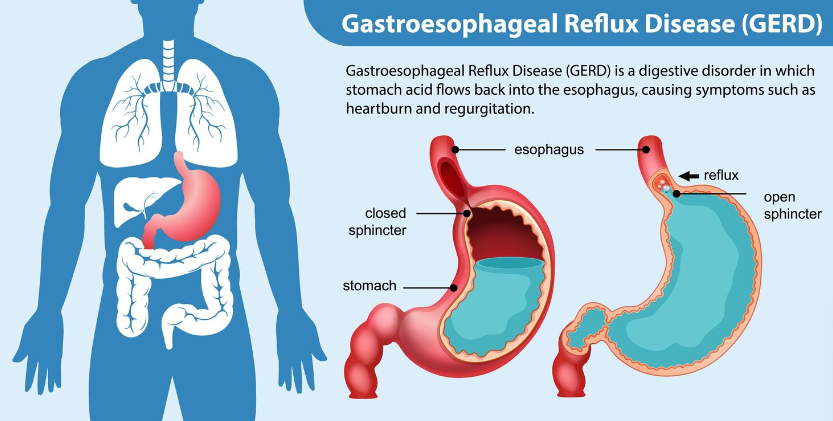
Understanding Gastroenteritis: What It Is and How It Affects You
Introduction: What Is Gastroenteritis?
Gastroenteritis, also known as the stomach flu, is a condition that causes inflammation in the stomach and intestines. This illness is quite common and can affect anyone. While it’s often not serious, it can lead to dehydration and other complications if not managed properly. Understanding the causes, symptoms, and treatment options for gastroenteritis can help you recover more quickly and minimize discomfort.
What Causes Gastroenteritis?
Gastroenteritis can be triggered by different types of infections, including viruses, bacteria, and parasites. The infection typically spreads when you consume contaminated food or water or come into contact with infected individuals. Here are the common causes:
-
Viruses: The most common cause of gastroenteritis. Norovirus and rotavirus are the most frequent culprits. These viruses spread easily and are highly contagious.
-
Bacteria: Certain bacteria like Salmonella, E. coli, and Campylobacter can also cause gastroenteritis. They are often found in undercooked food, especially meat, and contaminated water.
-
Parasites: Giardia and other parasites can lead to gastroenteritis, especially in areas with poor sanitation. These parasites can also spread through contaminated water sources.
The risk increases if you have poor hygiene practices or come in contact with someone who is sick.
How Does Gastroenteritis Affect You?
Gastroenteritis can impact people differently. For some, it may cause only mild discomfort, while others may experience severe symptoms that can lead to complications like dehydration. Here’s how it can affect different groups of people:
- Healthy adults typically recover from gastroenteritis without medical intervention.
- Children and elderly individuals are more vulnerable to dehydration due to their smaller body size and higher fluid loss.
- People with weakened immune systems or chronic health conditions may experience more severe symptoms and need medical attention.
It’s important to monitor symptoms and seek help if they worsen or if you experience signs of dehydration, such as dizziness, dry mouth, or reduced urination.
Common Symptoms of Gastroenteritis
The symptoms of gastroenteritis usually develop within 1 to 3 days after exposure to the infectious agent. These symptoms can vary in severity but generally include:
-
Diarrhea: Frequent, watery stools are common. It can range from mild to severe, sometimes with blood or mucus.
-
Vomiting: Nausea and vomiting can make it hard to keep food or fluids down.
-
Abdominal cramps: Painful cramping or bloating often accompanies gastroenteritis.
-
Fever: A mild fever may accompany the illness, especially if it’s caused by a bacterial infection.
-
Headache and muscle aches: These symptoms can sometimes accompany the main digestive symptoms.
Symptoms can last anywhere from a couple of days to a week, and while most people recover without medical treatment, severe symptoms may require medical intervention.
How Is Gastroenteritis Treated?
In most cases, gastroenteritis resolves on its own. However, treatment focuses on relieving symptoms and preventing complications:
-
Rest: Giving your body time to recover is essential. Avoid strenuous activities until you feel better.
-
Hydration: The most important part of treatment is to drink plenty of fluids. Dehydration can be a serious risk, especially in young children and the elderly. Oral rehydration solutions (ORS) are ideal as they replace both water and electrolytes lost through diarrhea and vomiting.
-
Over-the-counter medications: Medications like loperamide (Imodium) can help reduce diarrhea, and acetaminophen (Tylenol) can ease aches and fever. However, avoid using anti-vomiting medications without a doctor’s approval, as vomiting may help your body expel the infection.
-
Diet: Stick to a bland diet, such as the BRAT diet (bananas, rice, applesauce, and toast), until you feel better. Avoid dairy, caffeine, and greasy foods that can irritate the stomach.
In severe cases, particularly when dehydration becomes a concern, you may need to seek medical help. A doctor may provide IV fluids to restore lost hydration or prescribe antibiotics if the cause is bacterial.
Preventing Gastroenteritis
Prevention is the key to avoiding gastroenteritis. Here are simple steps you can take:
-
Wash your hands: Wash your hands thoroughly with soap and water, especially before eating, after using the bathroom, and after caring for a sick person.
-
Practice good food safety: Avoid undercooked meats and unpasteurized dairy products. Make sure to wash fruits and vegetables before eating.
-
Avoid close contact with sick individuals: If someone is infected, keep your distance. Clean surfaces regularly, especially in shared spaces.
-
Disinfect: Use a disinfectant to clean surfaces that may have come into contact with vomit or stool, including bathroom fixtures and kitchen countertops.
These habits can significantly reduce the chances of infection and help keep you and your family safe.
Conclusion: Managing Gastroenteritis
Gastroenteritis, while uncomfortable, is usually not serious and can be managed at home with rest, hydration, and over-the-counter remedies. However, if you experience severe symptoms or signs of dehydration, it’s important to seek medical care. By understanding the causes, symptoms, and treatment options, you can recover more quickly and reduce the risk of complications. Remember, good hygiene and food safety practices are your best defense in preventing gastroenteritis.
To seek medical advice, always consult a Doctor. Here are our recommended experts. Click Here
To read more on Gastroenteritis. Click Here



